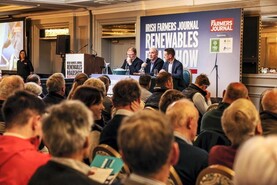A fresh diplomatic row over a gas pipeline has raised further fears of higher energy and fertiliser prices in Europe and the UK.
Germany’s energy regulator has temporarily suspended certification of a new gas line between Russia and Germany, the Nord Stream 2.
The pipeline, which is operated by Russian state-owned outfit Gazprom, has proved contentious as it allows Russia to export gas under the Baltic Sea to Germany and Europe without using Ukrainian pipelines. Dutch gas futures prices rose 7% to €89.50 per megawatt hour in early trading on Tuesday when news of the suspension broke.
The German regulator stated it could not approve the project because its owners had not yet properly set up an operating subsidiary, according to German law.
Several European countries have accused Russia of restricting gas supply to pressurise the approval of the Nord Stream 2 pipeline.
As gas prices have soared across Europe, Russia, on which Europe has become increasingly reliant on for gas supplies, has indicated more than once that gas supplies would increase but to no avail.
Political influences growing
The delay will crush any hopes that gas supplies from Russia into Europe will increase over the course of the winter period.
Political influences on European gas supply have been increasing since late summer. At the start of October, the Irish Farmers Journal reported that Russia’s permanent representative to the EU, Vladimir Chizhov, suggested that Europe’s treatment of Russia as an adversary had not helped, saying: “Change adversary to partner and things get resolved easier.”
Fertiliser recovery appears further off
Both supply and demand factors have combined to fuel European gas prices.
With virtually no hope of supply increases, analysts are now pointing to the need to cut industrial demand to maintain supplies for power and heat markets.
This is bad news for the European fertiliser industry, which has imposed a series of shutdowns and curtailments as a result of high gas prices.
Concern within the industry remains that some production may relocate and not come back on stream. The prospect of recovery in the fertiliser market appears further off with the news of this announcement.
The growing dependency in Europe’s energy markets is central to the current crises and exposes European industry and consumers to the type of geo-political influences that have emerged in the past months.
Russia accounts for 40% of the EU's natural gas imports. The road to decarbonsiation of energy and reducing emissions from agriculture will be paved with challenges. If lessons are not taken from the current crises, consumers may be facing a period of protracted price volatility and supply challenges.
A fresh diplomatic row over a gas pipeline has raised further fears of higher energy and fertiliser prices in Europe and the UK.
Germany’s energy regulator has temporarily suspended certification of a new gas line between Russia and Germany, the Nord Stream 2.
The pipeline, which is operated by Russian state-owned outfit Gazprom, has proved contentious as it allows Russia to export gas under the Baltic Sea to Germany and Europe without using Ukrainian pipelines. Dutch gas futures prices rose 7% to €89.50 per megawatt hour in early trading on Tuesday when news of the suspension broke.
The German regulator stated it could not approve the project because its owners had not yet properly set up an operating subsidiary, according to German law.
Several European countries have accused Russia of restricting gas supply to pressurise the approval of the Nord Stream 2 pipeline.
As gas prices have soared across Europe, Russia, on which Europe has become increasingly reliant on for gas supplies, has indicated more than once that gas supplies would increase but to no avail.
Political influences growing
The delay will crush any hopes that gas supplies from Russia into Europe will increase over the course of the winter period.
Political influences on European gas supply have been increasing since late summer. At the start of October, the Irish Farmers Journal reported that Russia’s permanent representative to the EU, Vladimir Chizhov, suggested that Europe’s treatment of Russia as an adversary had not helped, saying: “Change adversary to partner and things get resolved easier.”
Fertiliser recovery appears further off
Both supply and demand factors have combined to fuel European gas prices.
With virtually no hope of supply increases, analysts are now pointing to the need to cut industrial demand to maintain supplies for power and heat markets.
This is bad news for the European fertiliser industry, which has imposed a series of shutdowns and curtailments as a result of high gas prices.
Concern within the industry remains that some production may relocate and not come back on stream. The prospect of recovery in the fertiliser market appears further off with the news of this announcement.
The growing dependency in Europe’s energy markets is central to the current crises and exposes European industry and consumers to the type of geo-political influences that have emerged in the past months.
Russia accounts for 40% of the EU's natural gas imports. The road to decarbonsiation of energy and reducing emissions from agriculture will be paved with challenges. If lessons are not taken from the current crises, consumers may be facing a period of protracted price volatility and supply challenges.






 This is a subscriber-only article
This is a subscriber-only article











SHARING OPTIONS: